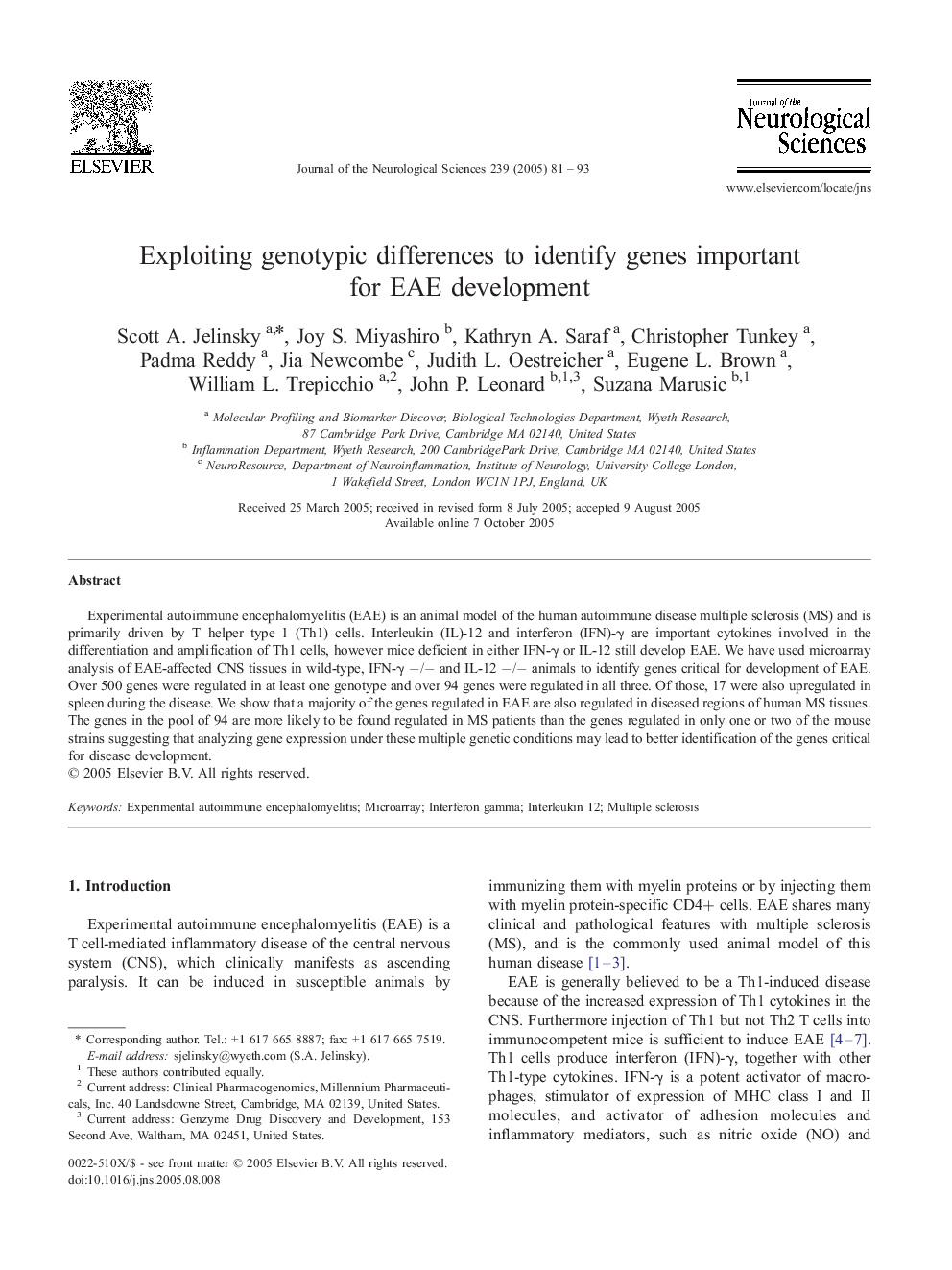| Article ID | Journal | Published Year | Pages | File Type |
|---|---|---|---|---|
| 10742418 | Journal of the Neurological Sciences | 2005 | 13 Pages |
Abstract
Experimental autoimmune encephalomyelitis (EAE) is an animal model of the human autoimmune disease multiple sclerosis (MS) and is primarily driven by T helper type 1 (Th1) cells. Interleukin (IL)-12 and interferon (IFN)-γ are important cytokines involved in the differentiation and amplification of Th1 cells, however mice deficient in either IFN-γ or IL-12 still develop EAE. We have used microarray analysis of EAE-affected CNS tissues in wild-type, IFN-γ â/â and IL-12 â/â animals to identify genes critical for development of EAE. Over 500 genes were regulated in at least one genotype and over 94 genes were regulated in all three. Of those, 17 were also upregulated in spleen during the disease. We show that a majority of the genes regulated in EAE are also regulated in diseased regions of human MS tissues. The genes in the pool of 94 are more likely to be found regulated in MS patients than the genes regulated in only one or two of the mouse strains suggesting that analyzing gene expression under these multiple genetic conditions may lead to better identification of the genes critical for disease development.
Keywords
Related Topics
Life Sciences
Biochemistry, Genetics and Molecular Biology
Ageing
Authors
Scott A. Jelinsky, Joy S. Miyashiro, Kathryn A. Saraf, Christopher Tunkey, Padma Reddy, Jia Newcombe, Judith L. Oestreicher, Eugene Brown, William L. Trepicchio, John P. Leonard, Suzana Marusic,
